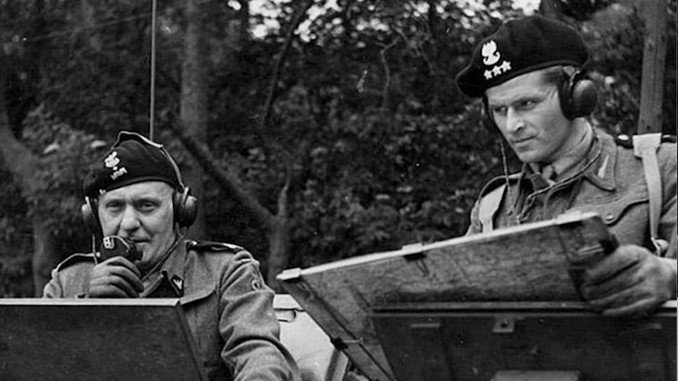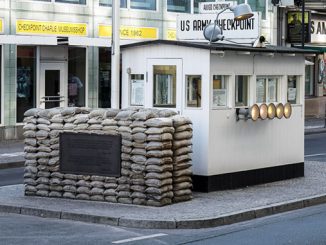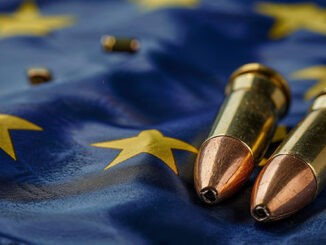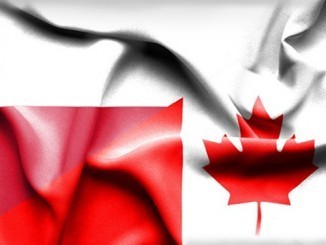
Reminding events and facts, quoting the opinions of history researchers and objective observers is the best way to show Poland’s role in the history of Western civilization and culture. One of the initiatives is the project “We tell Poland to the world”, which resulted in the publication of important statements about Poland in prestigious media around the world. They appeared in “Le Figaro”, “Die Welt”, “Sunday Express”, “Chicago Tribune”, “Le Soir”, “El Mundo” and other magazines. Among the articles is the story by Captain Barry Sheehy, the initial version of which was published in “Polska Canada”. The fascination of Sheeha brothers with the heroism of Poles during World War II resulted in a documented expedition overseas in 2018.
How the Poles on the beach of Normandy saved Canadians: an unknown fragment of the war – writes capt. Barry SHEEHY
One summer I decided to go with my brothers to French Normandy to see the places where Canadian soldiers fought heroically. But standing on Hill 262 – which in August 1944 was captured by the 1st Polish Armoured Division (which was then part of the 1st Canadian Army), thus closing the Falaise corridor and cutting off the escape route for German troops – I was thinking only about the Poles.
The fighting in this place in France included one of the bloodiest clashes during the entire Second World War. I admired the courage and bravery of Polish soldiers who, isolated and cut off from all reinforcements at Mont Ormel, defended their positions until the end. Canadian grenadiers were the first to break through to them. This battle ended the great bloody campaign in Normandy.
Poland sent a quarter of a million soldiers from its infantry, navy and air force to the Allied front, despite being occupied by Nazi Germany and the Soviet Union. The heroic Poles served in every major war campaign, including the battle for Britain, the battle for the Atlantic, the struggles in North Africa, Italy, Normandy and all of north-western Europe. Polish cryptologists played a key role in deciphering the German Enigma, which was one of the greatest scientific achievements in those days and shortened the war by a good few years. There are so many examples of Polish bravery during the Second World War that it is difficult to focus only on one. These include the final assault on Monte Cassino – led by Poles along with the Canadians, RAF squadrons (302 and 303) in the Battle of Britain – and the amazing heroism of the Polish destroyer “Piorun” which attacked the most powerful warship in that part of the world – “Bismarck”. The tiny destroyer, before it started fighting with guns and torpedoes against the German behemoth, sent the signal: “I am Polish; I am Polish”.
There is an event that my countrymen remember vividly. The Polish destroyer “Ślązak”, under the command of veteran Captain Romuald Tymiński, took part in the tragic raid at Dieppe in 1942, and was the witness of the bloodiest day for Canada during the Second World War. Over 5,000 well-trained Canadian soldiers who went ashore that day died, were wounded or taken prisoner. It was a dark day for my country. But during this massacre the Polish destroyer “Ślązak” did something incredible. Captain Tymiński, seeing the Canadians being massacred on the beach, ignored the order to stay away from the shore and swam as close as possible to provide cover for the Canadian soldiers. The ship was so dangerously near the shallows that everyone was sure it would run aground. Shooting continuously at the German positions, it stopped just in front of the shallows, and the Polish sailors set up anti-aircraft guns on the beach, with which they fired at German planes. They quickly managed to shoot down four planes. When the order came to leave the beach, “Ślązak” took with it another eighty-five Canadian soldiers, and almost half of them were extremely experienced servicemen of the Royal Canadian Regiment. For these tough veterans from the Western European Front, Captain Tymiński and his crew were xheroes.
After the war, Captain Tymiński settled in Canada and became an honorary member of the Royal Canadian Regiment in recognition of his courage at Dieppe. He is buried at the Polish Navy Cemetery in Gdynia.
Standing with our brothers at Wzgórze 262 in Normandy, we swore that one day we would go to Poland and lay wreaths at the monument of Gen. Maczek, to honour the brave Poles and their Canadian allies. Twenty years after taking the oath, in October 2018, we fulfilled this promise.
Capt. Barry Sherry



